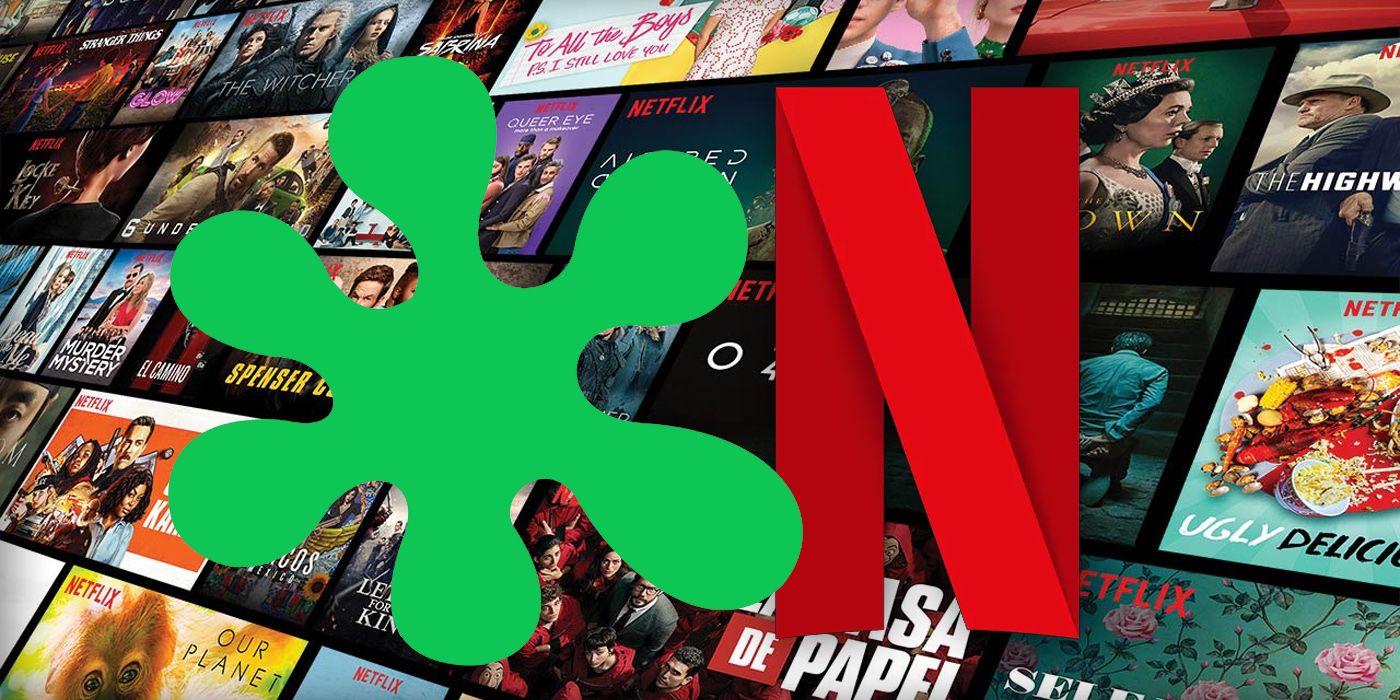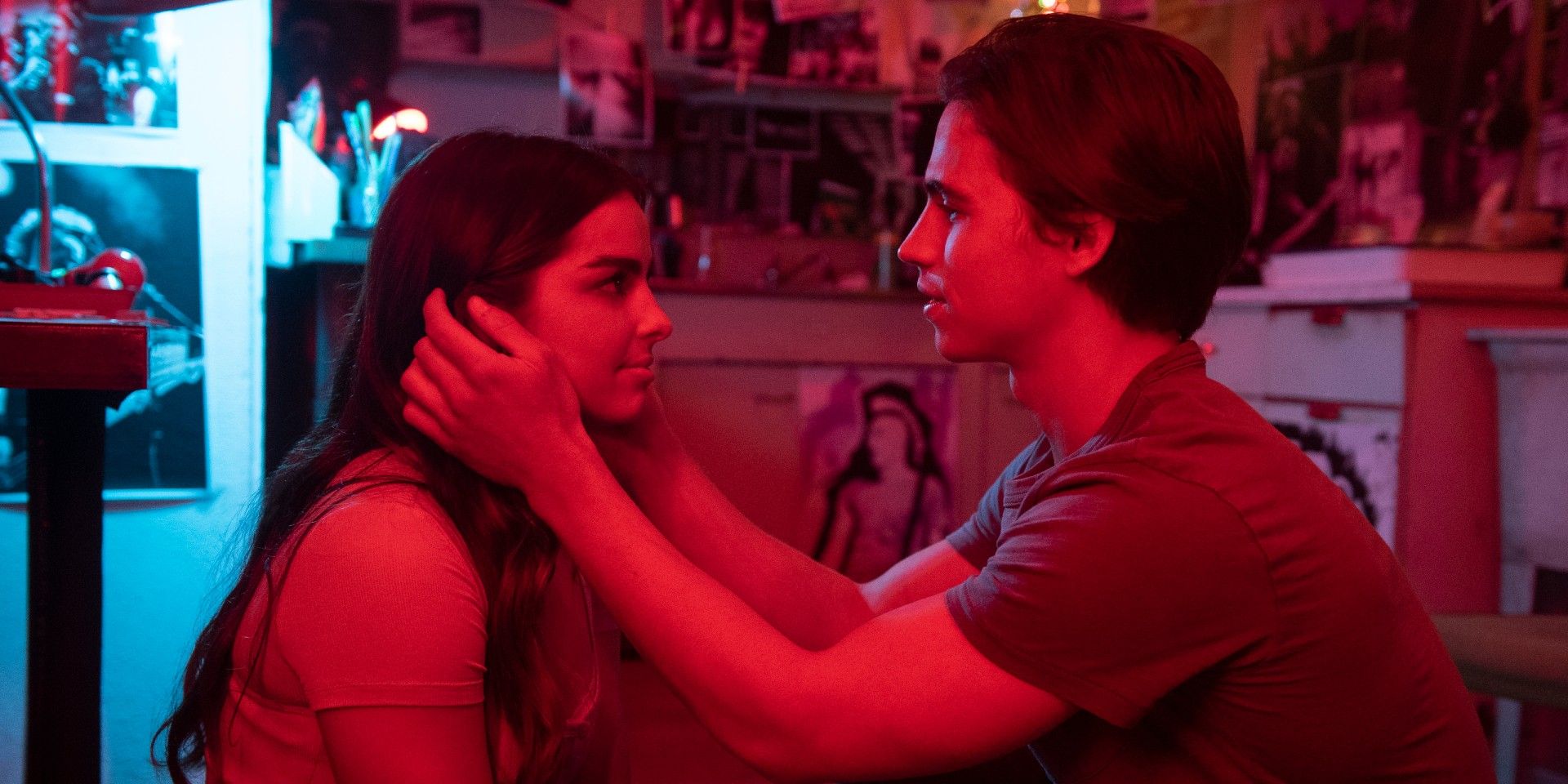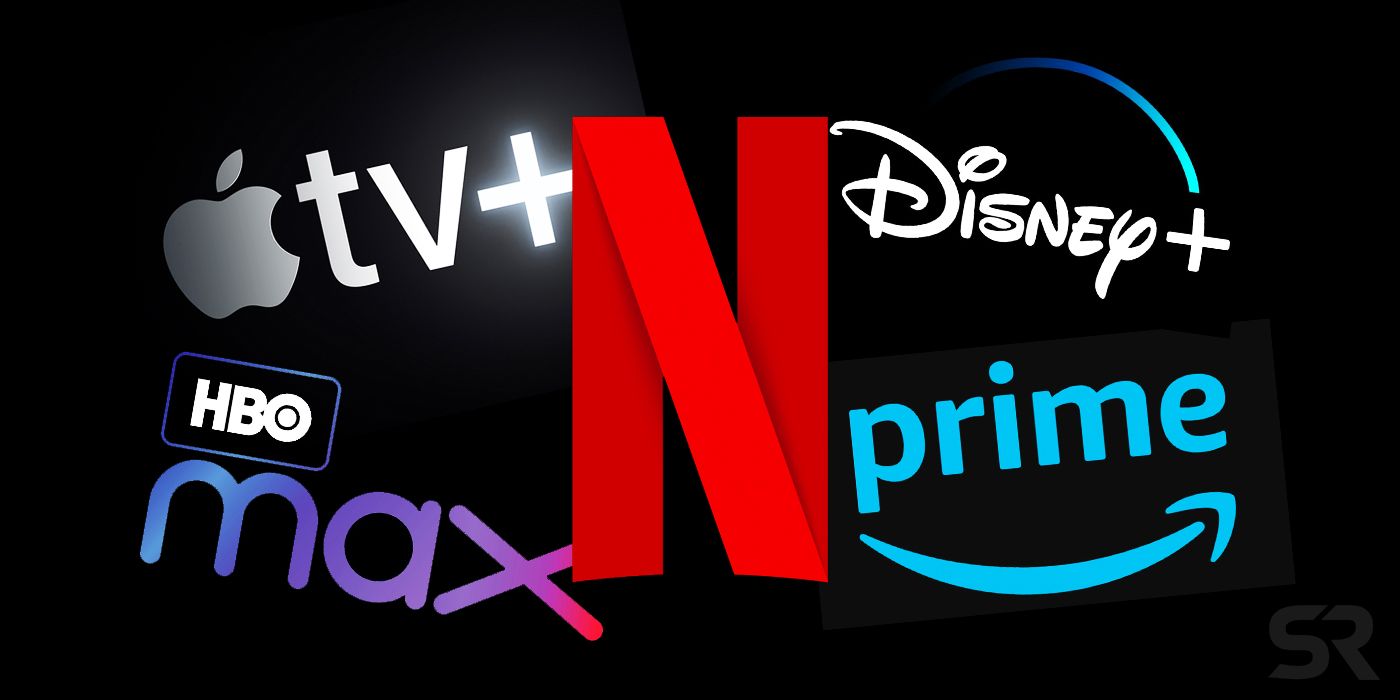Even if the majority of its original films are of lackluster quality, Netflix is still the reigning streaming service king. In fact, part of the platform's success can be attributed to the exact strategy of manufacturing as much content as possible regardless of quality. It's why Netflix isn't as concerned with its movies being good so much as they're present and plentiful.
The current streaming service wars dictate that Netflix can no longer rely on licensed material in order to woo subscribers. Luckily for the original streamer, Netflix has been around long enough to slowly introduce its own original movies and television shows and keep the majority of its subscribers that signed on years ago. That ability to mold and adapt to a new entertainment market is why the service is still the most recognizable household name, even in the midst of intense competition. However, Netflix doesn't have the advantage of relying on as many pre-existing popular IPs as say, Disney+ or DCEU home HBO Max, and must consistently create new content in the hopes of making a hit.
As a result, viewers see a lot more of the Netflix original tags when browsing the service than in the past. That's also because Netflix intentionally advertises its own branded content more than suggesting third-party licensed material. While the COVID-19 pandemic seemed to at least temporarily curtail film and television production, Netflix is making up for any lost time by releasing at least one new movie every week, an ambitious plan that proves the company shows no signs of slowing down its growth. In addition, the streamer has also created its own marketing event in the form of TUDUM in order to promote its growing supply of original IPs. All this amounts to an ever-growing library of Netflix material that's meant to both maintain existing subscribers and bring in new ones.
Netflix Makes A Lot Of Bad Movies
Netflix has been building its reputation as a formidable awards machine, having produced and distributed an impressive number of critically acclaimed films and series. For every The Irishman or Roma, however, there is a crop of generic, flat action movies such as the critically-derided The Last Days of American Crime, or at least five low-effort Adam Sandler vehicles like Murder Mystery. Even the streaming platform's efforts to woo the awards crowd don't always work out successfully, as the decried Hillbilly Elegy or The Starling provide evidence for. Simply and frankly put, Netflix's mediocre content outweighs its notable selections.
Looking at the platform's 2021 releases alone proves that most of the original programming ranges from forgettable and bland to downright awful. The fact that the streamer is following up on its ambitious plan to release a movie literally every week of the year makes the sheer volume of misfires less surprising. A small handful of recent Netflix original films are high-budget tentpole projects such as Army of the Dead and the upcoming Dwayne Johnson vehicle Red Notice, but there are significantly more unnotable titles that inevitably get lost in the algorithm.
Netflix Movies Still Get Watched (Even If They're Bad)
However, Netflix's bad movies don't always end up doomed to the digital ether. In fact, a sizeable margin of these critical duds actually become genuine hits for the streaming service. The Top Ten most-watched list on Netflix fluctuates on a daily basis, but even the worst movie has a chance to land a spot there, especially since Netflix's algorithm pushes its own original content over licensed material. Recently, the completely unnecessary He's All That, a gender-swapped remake of the 1999 romantic comedy, became the number one most-watched feature on the service in its first week of release. The Jason Mamoa-headed Sweet Girl, another critical dud, jumped to the top spot in its first day on the service.
These numbers don't necessarily mean that audiences are sitting through these movies from beginning to end, either. Netflix counts at least two minutes of watch time towards the viewership metrics, enough to indicate "the choice was intentional," according to the streamer. That means that the average curious subscriber who chooses to abort watching a movie all the way through will still count towards the overall number of views. This wasn't always the case; Netflix used to label movies as "watched" if users got through at least 70% of the run time, as was the case when Bird Box became a sensation in 2018. However, the current data-crunching system is supposed to more accurately reflect an individual subscriber's overall interest in the chosen content and thus more efficiently feed the algorithm.
Why Netflix Doesn't Care If Its Movies Are "Good" (& Will Keep Making More)
All this means that Netflix subscribers will "watch" an original movie if the algorithm pushes it enough. It's a far cry away from the days when buying a movie theater ticket to a potentially bad movie was a financial risk for both the consumer and the studio. Inferior content isn't enough to make people unsubscribe to Netflix, so poor quality is less of a hazard than it is for major theatrical releases that rely on box office performance. On the contrary, Netflix only has more subscribers to gain from the more popular original releases, and simple math dictates that the more original content is available, the more people will end up checking out new releases.
This model explains why Netflix is now releasing movies on a weekly basis, a classic case of favoring quantity over quality. It also means that there's an oversaturation of content on the service, though surely that won't make an impact on subscribers' willingness to continue to pay or Netflix's rapid-paced distribution strategies. It just means that there's a far higher chance that the newest movie that pops up on the home screen will be a disappointing or even miserable watch. But a watch is a watch, and that's the most important factor for Netflix's streaming war campaign.
However, there is a bright side to this seemingly cynical distribution method. The sheer volume of Netflix content being produced means that there are more opportunities for mid-budget projects that a Hollywood studio normally wouldn't greenlight. It also allows the service to be more adventurous in the kind of projects it approves, taking risks on provocative or unusual material. Although the streamer's approach yields plenty of misfires, Netflix's strategy can also unearth some hidden gems.


![The Starling Is A Major (& Expensive) Backfire For Netflix [MINI]](https://static1.srcdn.com/wordpress/wp-content/uploads/2021/09/The-Starling-Is-A-Major-Expensive-Backfire-For-Netflix-MINI.jpg)

